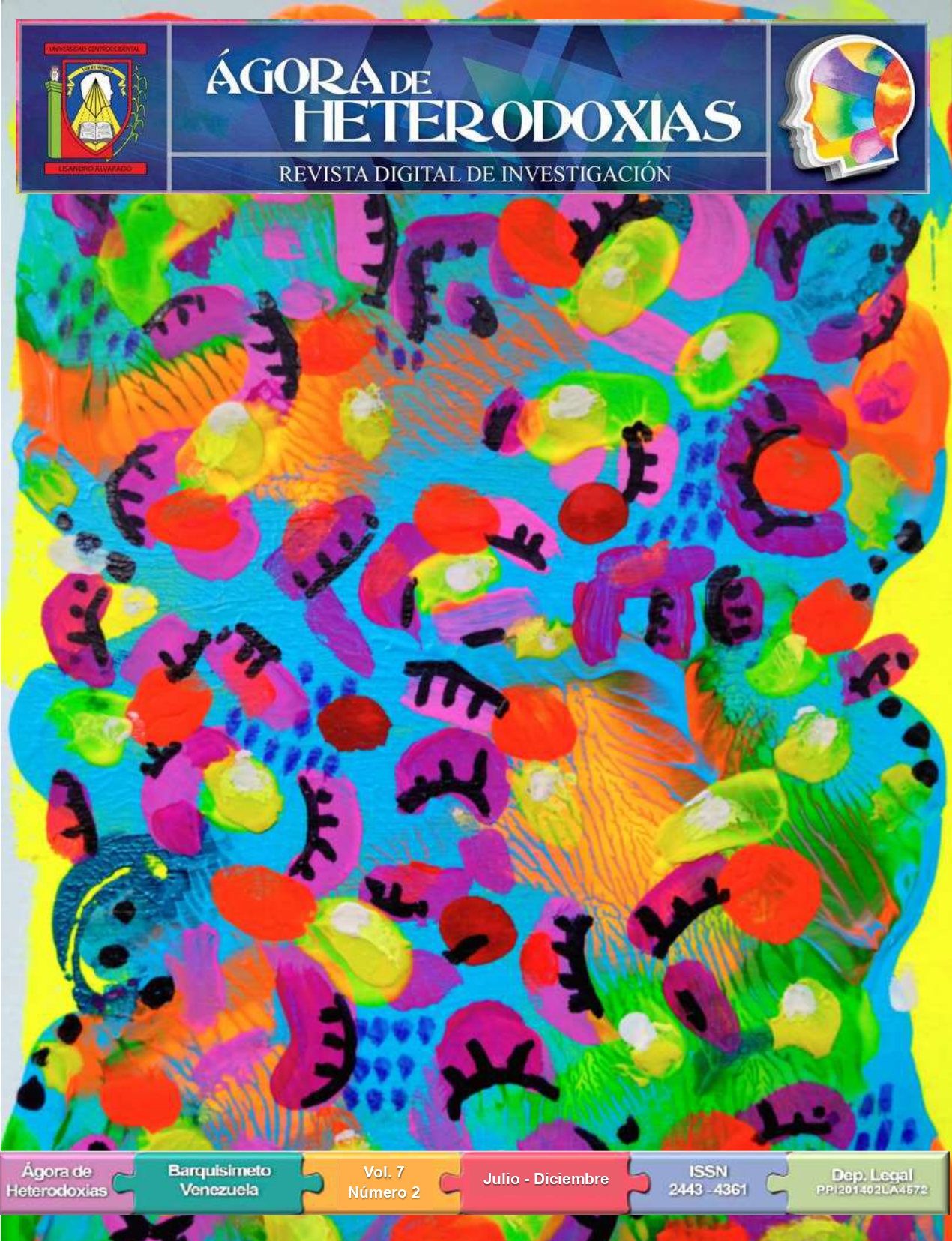About politics, economy and engagement: disquisitions and premonitions
DOI:
https://doi.org/10.5281/zenodo.7113646Keywords:
About politics, economy, engagementAbstract
If a brief and very tight overview could be made of the transcendental changes that humanity has experienced, some facts could be pointed out that are common to the conditions that have marked each stage of history: technological innovations, the appearance of power groups, shared interests, promising speeches that predict improvements and transformations, even strategies that make possible the intentions of the different social actors and the political-economic systems that have given rise to and have governed the lives of human beings.
Downloads
References
Ayuso, A. (2007), "Pobreza, desigualdad y cohesión social: más allá de los Objetivos del Milenio". En: Pensamiento Iberoamericano, II época, 2007/1, núm.0. Madrid: AECID y Fundación Carolina, pp. 107–132.
CEPAL. (2020). “70 años de la CEPAL y el pensamiento cepalino”. CEPAL. [30 de marzo de 2020). En: https://biblioguias.cepal.org/CEPAL70/decada80
CESOP. (2019). El nuevo orden mundial multipolar: la geopolítica de Rusia, China y Estados Unidos. México: Centro de Estudios Sociales y de Opinión Pública. Documento de trabajo núm. 304.
Chang, Ha-Joon. (2020). “Construir un multilateralismo favorable al desarrollo: hacia un “nuevo” nuevo orden económico internacional”. En: Revista CEPAL no. 132 - Edición Especial. El COVID-19 y la crisis socioeconómica en América Latina y el Caribe. [diciembre 2020]. En: https://www.cepal.org/es/publicaciones/46824-construir-un-multilateralismo-favorable-al-desarrollo-un-nuevo-nuevo-orden
Equihua Zamora, Miguel; Hernández Huerta, Arturo; Pérez Maqueo, Octavio; Benítez Badillo, Griselda; Ibañez Bernal, Sergio. (2016). “Cambio global: el Antropoceno”. Ciencia Ergo Sum, vol. 23, núm. 1, marzo-junio, 2016, pp. 67-75. Universidad Autónoma del Estado de México, Toluca, México.
FMI. (2000). La globalización: ¿Amenaza u oportunidad? Fondo Monetario Internacional. [abril de 2000]. En: https://www.imf.org/external/np/exr/ib/2000/esl/041200s.htm#:~:text=Se%20refiere%20a%20la%20creciente,trav%C3%A9s%20de%20las%20fronteras%20internacionales
García Barrios, Raúl y Jiménez Martínez, Nancy Merary. (2020). “¿Antropoceno o Capitaloceno?”. Nexos, en: https://medioambiente.nexos.com.mx/antropoceno-o-capitaloceno/
Harter, James K. et al. (2020). “The Relationship Between Engagement at Work and Organizational Outcomes”. Gallup 2020 Q12 Meta-Analysis, 10th Edition. En: https://www.mandalidis.ch/coaching/2021/01/2020-employee-engagement-meta-analysis.pdf
Keller, Carlos. (1925). “El capitalismo primitivo”. Atenea, 2(3), 199-212. https://doi.org/10.29393/At3-194CKCP10194
Levitsky, Steven y Ziblatt, Daniel. (2018). Cómo mueren las democracias. México: Editorial Ariel.
OECD. (2018). Tourism Trends and Policies 2018. Organisation for Economic Co-operation and Development. En: https://www.oecd-ilibrary.org/urban-rural-and-regional-development/oecd-tourism-trends-and-policies-2018/megatrends-shaping-the-future-of-tourism_tour-2018-6-en
Omar, Alicia y Urteaga, Alicia (2010). “El impacto de la cultura nacional sobre la cultura organizacional”. Universitas Psychologica, Bogotá, Colombia, ene-abr, vol. 9, núm. 1, p. 79-92.
Ongel, Elif (2014). “The Relationship between Employee Engagement and Organizational”. The International Journal of Social Sciences, vol. 25, núm. 1, julio, p. 1-10.
Saks, Alan. (2006). “Antecedents and Consequences of Employee Engagement”. Journal of Managerial Psychology, vol. 21, núm. 7, p 600–619.
Schaufeli, Wilmar B. y Salanova, Marissa (2007). “Work Engagement: An Emerging Psychological Concept and its Implications for Organizations”. En: S. W. Gilliland, D. D. Steiner. y D. P. Skarlicki (Eds.). Research in Social Issues in Management (Volume 5): Managing Social and Ethical Issues in Organizations. Greenwich, CT: Information Age Publishers, p. 135-177.
Serratos, Francisco. (2020). El capitaloceno. Una historia radical de la crisis climática. México: Ed. Dirección General de Publicaciones y Fomento Editorial.
Trischler, Helmuth. (2017). “El Antropoceno, ¿un concepto geológico o cultural, o ambos?”. Desacatos 54, mayo-agosto 2017, pp. 40-57.
Ugarteche, Oscar y Negrete, Armando. (2020). “Efectos la guerra comercial y el Nuevo Orden Comercial Mundial”. Observatorio Económico Latinoamericano (OBELA), Num.2, Año 2020, [14 de febrero de 2020].
Van Trotsenburg, Axel. (2019). “Bretton Woods: 75 años de solidaridad con América Latina y el Caribe”. El País, [julio 12, 2019]. En: https://www.bancomundial.org/es/news/opinion/2019/07/15/bretton-woods-75
Wahyu Ariani, Dorothea. (2013). “The Relationship between Employee Engagement, Organizational Citizenship Behavior, and Counterproductive Work Behavior”. International Journal of Business Administration 4(2).
Zibechi, Raúl. (2020). “A las puertas de un nuevo orden mundial”. Diario El Salto. [25 de marzo de 2020]. En: https://www.elsaltodiario.com/coronavirus/geopolitica-china-estados-unidos-union-europea-a-toda-velocidad-hacia-el-caos-sistemico
Published
How to Cite
Issue
Section
Copyright (c) 2021 Ágora de Heterodoxias

This work is licensed under a Creative Commons Attribution-NonCommercial-ShareAlike 4.0 International License.
![]() Authors keep their copyrights so articles can be reused for teacher and research purpose. Readers and users can also reuse articles for the same purposes but not for commercial purposes. Ágora de Heterodoxias has no responsibility on information given by collaborators which is not necessarily the point of view of the publication
Authors keep their copyrights so articles can be reused for teacher and research purpose. Readers and users can also reuse articles for the same purposes but not for commercial purposes. Ágora de Heterodoxias has no responsibility on information given by collaborators which is not necessarily the point of view of the publication



